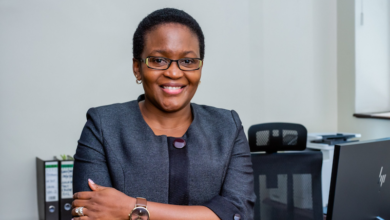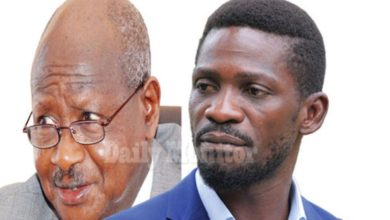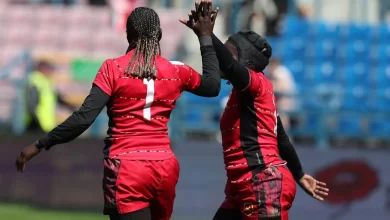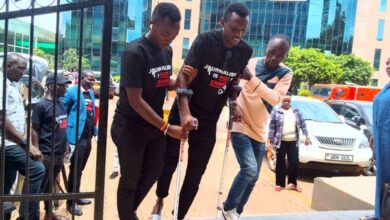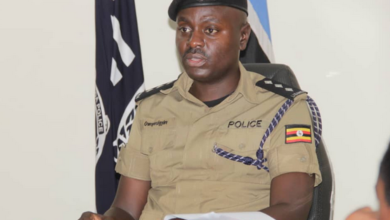Local News
The making of CoU archbishop
Bowing out. Church of Uganda Archbishop Stanley Ntagali will retire next year.

Thirty-seven bishops from the Province of the Church of Uganda (CoU) will converge in Hannington Chapel in Namirembe Cathedral this week to elect Archbishop Stanley Ntagali’s successor.
The exercise will see the election of the ninth archbishop of the Church. According to the CoU constitution, the archbishop serves for 10 years or leaves office upon clocking 65 years.
Additionally, all bishops who have clocked 65 years or attained the age in the year of election are ineligible to stand but are eligible to vote.
The constitution also states that the dean of the province of the church, who is the most senior of the bishops, declares the impeding resignation or retirement so that the bishops assemble to elect a replacement of the retiring or resigning archbishop.
The current dean is Kumi Diocese Bishop Edison Irigei. He is the convener of the House of Bishops, which elects the new archbishop.
However, it is the provincial chancellor who presides over the elections. According to Article 15 section (1) of the CoU constitution, the chancellor is supposed to be an advocate and commissioner of oaths.
The current chancellor is lay canon Barnabas Tumusingize, a senior lawyer in Kampala.
A senior clergy, who preferred anonymity, said the chancellor is appointed under the rules of the canon law.
“He is appointed with the qualification of the provincial canons and the archbishop in conjunction with the provincial assembly,” the cleric said.
Canon Tumusingize was appointed by former archbishop Luke Orombi.
For the elections to be held, none of the 37 diocesan seats should be vacant, except for Kampala because the archbishop to be elected is the overseer of the diocese.
Of the 37 bishops, 33 will be eligible to be voted although they are all also allowed to vote.
Among those ineligible are Bishop Irigei and Archbishop Ntagali.
“I am retiring in December since I will be clocking the official retirement age of 65 years,” Bishop Irigei said.
Inside the Hannington Chapel
The bishops will go into a retreat on August 27 and the provincial dean will lead them in prayer and Holy Communion.
The following morning, the chancellor will conduct the election which starts with nomination of those who are legible.
Part of section two of Article 10 of the church constitution says: “No person shall be elected to the office of the archbishop unless he or she has attained the age of fifty (50) years.”
Bishop (Rtd) Wilson Mutebi of Mityana Diocese says barring someone to stand because of age denies people the ability to serve.
“I don’t agree with the issue of limiting a bishop from serving as an archbishop because of age. That is one of the Articles I don’t agree with,” he says.
After nominations, the bishops, through a secret ballot, vote one of those nominated. Campaigns are not allowed in the Hannington Chapel.
The new archbishop is decided upon by a two-thirds majority of the voters. However, if the election is not decided upon on the first day, a second ballot or third voting will take place until the two-thirds majority winner is elected.
The current archbishop votes in his capacity as the diocesan bishop for Kampala.
“If there is a tie, he has a casting vote, but in the beginning, he votes as the bishop of Kampala. If there is need to break the tie, he invokes those powers to break the tie on day two,” a senior clergy says.
If the election fails to be decided after three ballots, the House of Bishops adjourns until the following day when a single ballot is taken and decided by a simple majority.
However, section (10) of Article 10 of the constitution allows for up to three ballots on the second day.
“If there is still a tie on the third ballot, then the most senior of the candidates shall be declared elected. Seniority among the candidates shall be determined according to the date of consecration as bishop or where consecration took place on the same day, it shall be determined by the date of ordination as priest,” the Article states.
Once the elections are done and there is a winner, the presiding officer informs the bishops of the archbishop-elect.
However, the presiding officer does not announce the results to the public, according to section 11 or Article 10.
“It will be the responsibility of the dean of the province to inform the dioceses and the Anglican communion of the name of the person who has been elected archbishop,” it states.
Being a bishop is not the only requirement for one to be elected the archbishop. The archbishop should have at least a minimum degree in theology or divinity. If the candidate’s first degree is not in any of the two, then they should have at least a post-graduate degree.
Complaints and legal challenges
In case there are complaints in the elections, the constitution provides for such an eventuality.
It requires the keeping of the ballot papers for a period of time in case of any challenge.
Section 14 of Article 10 states in part: “The person in charge of the election shall keep the ballot papers in safe custody for 30 days after which the said papers shall be destroyed by burning in the presence of the Dean of the province.”
Section 15 of the same Article gives a time limit during which any challenge to the election of a new archbishop can be made.
“Any person alleging invalidity of or irregularity in the election of the archbishop may submit his allegation in writing in the form of a petition to the chancellor of the province within twenty-eight days of the election for a review provided that the elections shall not be invalidated by the absence of any bishop or bishops if no less than two thirds of the house of bishops took part in the election,” the Article states.
Church of Uganda Bishops
No. Diocese overseer
1. Ankole Bishop Sheldon Frederick Mwesigwa
2. West Lango Bishop Alfred Acur Okodi
3. Sebei Bishop Paul Masaba
4. Mityana Bishop Stephen Kaziimba
5. North Karamoja Bishop James Nasak
6. East Ruwenzori Bishop George Turyasingura
7. Kumi Diocese Bishop Edison Irigei
8. Kampala Archbishop Stanley Ntagali
9. Lango Bishop Alfred Olwa
10. Muhabura Bishop Cranmer Mugisha
11. North Kigezi Bishop Benon Magezi
12. Soroti Bishop Kosea Odongo
13. Bukedi Bishop Samuel Egesa
14. Bunyoro-Kitara Bishop Sam Kahuma
15. Karamoja Bishop Joseph Abura
16. Luweero Bishop Eridard Nsubuga
17. Mukono Bishop William James Ssebaggala
18. North Mbale Bishop Samuel Gidudu
19. South Ankole Bishop Nathan Ahimbisibwe
20. Busoga Bishop Paul Naimanhye
21. Kigezi Bishop George Bagamuhunda
22. Madi-West Nile Bishop Collins Andaku
23. Namirembe Bishop Wilberforce Kityo Luwalira
24. Northern Uganda Bishop Johnson Gakumba
25. South Rwenzori Bishop Jackson Nzerebende
26. Central Buganda Bishop Michael Lubowa
27. Kinkiizi Diocese Bishop Dan Zoreka
28. Masindi-Kitara Bishop George Kasangaki
29. Nebbi Diocese Bishop Alphonse Watho-kudi
30. Ruwenzori Bishop Reuben Kisembo
31. West Ankole Bishop Johnson Twinomujuni
32. Central Busoga Bishop Patrick Wakula
33. Kitgum Bishop Wilson Kitara
34. Mbale Bishop Patrick Gidudu
35. North Ankole Bishop Stephen Namanya
36. Northwest Ankole Bishop Amos Magezi
37. West Buganda Bishop Henry Katumba-Tamale
SOURCE:Daily Monitor
